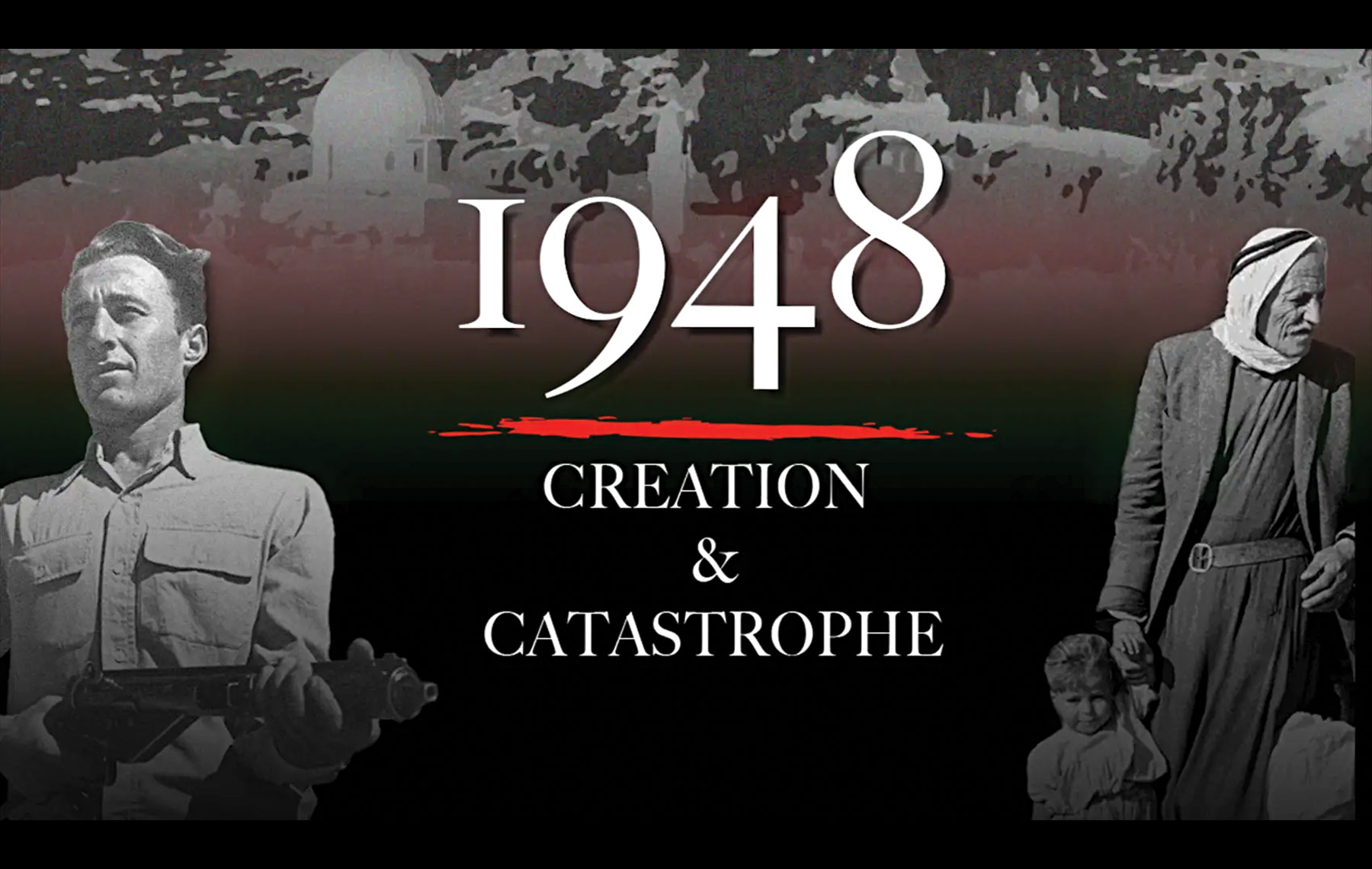
A recent UC Irvine screening and panel discussion of an anti-Israel film argued that the establishment of the State of Israel resulted in thousands of Palestinians being displaced.
The film, “1948: Creation and Catastrophe,” was hosted by the UC Irvine schools of Humanities, Social Sciences and Social Ecology on Jan. 31, a few days after International Holocaust Remembrance Day.
“1948” is a 2018 documentary directed and produced by Andy Trimlett and Cal State San Bernardino media studies professor Ahlam Muhtaseb. The documentary features firsthand accounts from Israelis and Palestinians who witnessed the 1948 Palestinian exodus (which Palestinians call Nakba, or “catastrophe”) following the establishment of the State of Israel.
Among those interviewed in the film are Ben-Gurion University Middle East studies professor Benny Morris and Columbia University Modern Arab studies professor Rashid Khalidi. The film has been screened at various universities, including UCLA and UC Berkeley.
Debra Glazer, the Orange County representative for StandWithUs, attended the UC Irvine event and told the Journal that the film “demonizes and delegitimizes Israel and Israelis and seeks to undermine the basic rights of the Jewish people to self-determination in their ancestral home.”
She added that Israeli Jews are essentially portrayed in the film as “war criminals and monsters, creating ill will and potentially putting Jews and supporters of Israel in danger.”
S. Harris Pinsky, founder and community leader of the Orange County chapter of the Jewish Republican Alliance, told the Journal that the most disturbing part of the film was the claim that Israeli soldiers told the Palestinians to put their babies in ovens.
“I could hear people around me sobbing and gasping,” Pinsky said.
“Beverly Pinsky also noted that there should have been space for people to present a different viewpoint than simply that of the filmmakers. ‘There must be the other side,’ she said. ‘If there’s not the other side, your side is worth nothing.’”
Glazer said she was perturbed that the panel, which featured Trimlett and Muhtaseb, did not include anyone who opposed the film. The panel was moderated by UC Irvine Middle Eastern history professor Mark LeVine, whom Glazer said is “an anti-Zionist JVP [Jewish Voice for Peace] professor.” LeVine has openly supported the boycott, divestment and sanctions movement against Israel and wrote in a 2016 Al-Jazeera op-ed that Israel “brazenly cuts off water to the West Bank.”
Glazer said she had voiced her concerns in an email to the deans of all three UC schools on Jan. 29. Social Sciences Dean Bill Maurer replied to her later that day that UC Irvine has various partnerships with Israel, including the School of Social Sciences’ Olive Tree Initiative that focuses on conflict resolution. Maurer said the screening provided the audience with an opportunity to ask the filmmakers questions.
“Given the nature of the film, we agreed to host it knowing that the filmmakers would attend the screening and answer audience member questions in a moderated discussion,” Maurer said. “Difficult dialogues further the educational mission of the university far better than simply screening a film without discussion, or allowing for the airing of others’ views without debate or question, or the simple utilization of the university as a soapbox.”
However, Pinsky’s wife, Beverly (who isn’t Jewish), told the Journal that only two questions were asked during the question-and-answer session, which she said lasted for only about 20 minutes. “We were expecting a little more interaction and shorter, clearer answers,” she said
Glazer similarly told the Journal that she thought the Q&A session was cut short in a “clumsy and abrupt” fashion. “I really have no idea what happened and there was no explanation,” she said. “Written questions were collected from the audience before the panelists began their discussion, but the moderator never indicated which question would be the last one.”
Glazer also said she was concerned that the film would have a detrimental impact on Jewish and pro-Israel students on campus.
“I think that anti-Israel activists in the audience will certainly spread the film’s message while they take courses on the Mideast conflict,” she said. “It also suggests that academic departments support a deeply one-sided, anti-Israel narrative, which can discourage students who hold a different view from speaking out.”
Beverly Pinsky also noted that there should have been space for people to present a different viewpoint than simply that of the filmmakers. “There must be the other side,” she said. “If there’s not the other side, your side is worth nothing.”
UC Irvine director of media relations Tom Vasich told the Journal in an email, “UC Irvine actively engages its students and the community to foster a civil dialogue on campus. The exercise and protection of freedom of speech and expression are at the core of the university’s mission of teaching, research and public service. Equally so is our commitment to modeling respectful dialogue.”
He noted that the university will be hosting Oren Segal, the director of the Anti-Defamation League’s Center on Extremism, on May 6.
Roz Rothstein, CEO and co-founder of StandWithUs, said in a statement, “Dehumanizing propaganda like the kind we see in this film can be dangerous at a time when anti-Semitism and other forms of hate are rising across the political spectrum. Hosting and promoting this event in an uncritical way is deeply problematic for a university that has publicly committed to implementing the UC Regents’ Principles Against Intolerance.”























 More news and opinions than at a Shabbat dinner, right in your inbox.
More news and opinions than at a Shabbat dinner, right in your inbox.